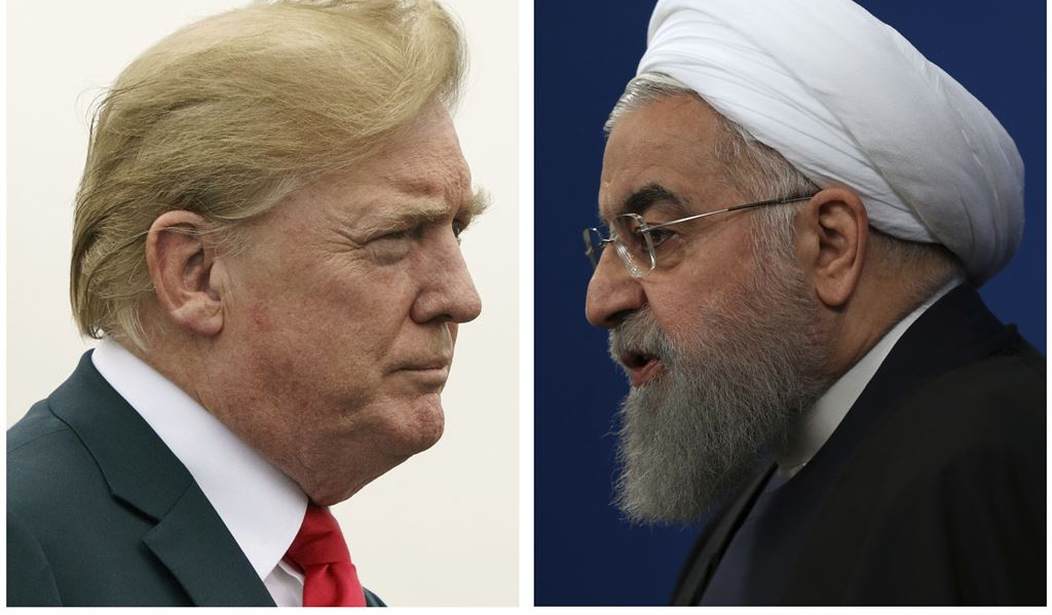“Maximum pressure.” That’s how the Trump administration describes its approach toward Iran — and lately, it’s really been living up to that billing.
Early in April, Secretary of State Mike Pompeo announced that Iran’s Islamic Revolutionary Guard was being designated a foreign terrorist organization. And now administration officials have ratcheted up the pressure even more: Eight countries that import Iranian oil won’t continue getting waivers from U.S. sanctions.
Turning the screws tends to get people’s attention, so it wasn’t surprising to hear Iranian Foreign Minister Javad Zarif decry this latest move. To hear him tell it, it’s either a clumsy attempt at regime change, or outright war-mongering by U.S. National Security Adviser John Bolton, Israel, Saudi Arabia and the United Arab Emirates.
Zarif claims this “B Team,” as he calls it, “have all shown an interest in dragging the United States into a conflict,” he told Fox News host Chris Wallace. “I do not believe that President Trump wants to do that. I believe that President Trump ran on a campaign promise of not bringing the United States into another war.”
What’s really going on, of course, is that the world’s largest state sponsor of terrorism is finally starting to feel the consequences of its actions. Zarif spoke from what Bolton dubbed a “carefully prepared propaganda script” because the administration’s “maximum pressure” is making it harder for Iran to export not just oil, but terrorism.
Recommended
Designating the Revolutionary Guard Corps — which Middle East expert James Phillips describes as “the sword and shield of Iran’s Islamic revolution” — as a terrorist organization is entirely appropriate. The Guard not only crushes political opposition to the revolution at home, it supports Iran’s wide network of foreign terrorist proxies.
More than 600 American servicemen in Iraq have died at the hands of proxy forces enabled by the Revolutionary Guard, which also controls Iran’s ballistic missile program.
In short, the Guard is a dangerous and destabilizing organization that specializes in murder and mayhem. Designating it a terrorist group is more than just a fitting moniker, though: It gives the U.S. government additional tools for applying sanctions against the Guard and all foreign entities that do business with them, their subsidiaries, and their front companies.
“These added sanctions will drain away resources that could be used to export terrorism, thus helping bolster the security of the U.S. and its allies,” writes Phillips. “This will also benefit the Iranian people, who are the chief victims of the Revolutionary Guard.”
Refusing to renew sanctions waivers on top of this is the “two” of the one-two punch. It’s a tough step, one that critics insist will cause oil prices to rise. Such fears are overblown, especially with the U.S. supplying so much of its own oil now, but even if prices did rise, we’re talking about saving lives.
Our security, along with that of our allies and so many others, is threatened on a daily basis by Iran’s actions. We need to push the cost of sowing terrorism worldwide much higher, to the point where Iranian leaders are no longer willing to pay it.
Three of the eight countries that have received sanctions waivers in the past won’t even feel the effects of this shift. They’ve already cut their oil imports from Iran to zero. Pushing the others to also get to zero is a strong but necessary step.
“We just want a continued chilling effect,” according to a senior administration official quoted in Radio Free Europe. “We want businesses to continue to think that doing business with Iran is a terrible idea at this point.”
Maybe then Iran will get the message that promoting terrorism is also a terrible idea. Until then, let’s keep applying that “maximum pressure.”
























Join the conversation as a VIP Member